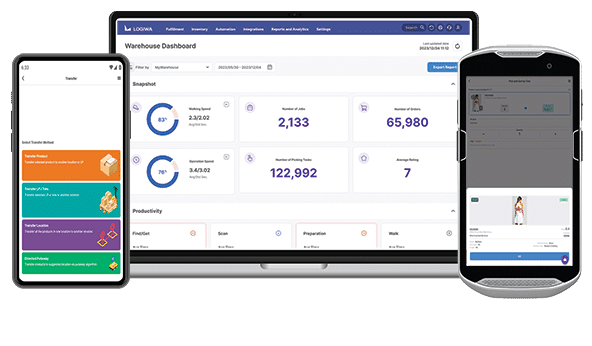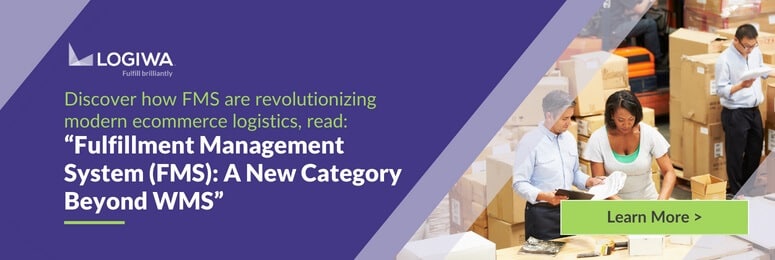One of those things might be order fulfillment.
If you don’t know about order fulfillment, read on to learn some important things about it. If you know the basics of order fulfillment, you’ll have a much better chance of succeeding at your business dreams and ensuring that you’re well-prepared to handle one of the most important elements of running a business.
Contents
What Is Order Fulfillment?
As you may be able to gather from the name, order fulfillment is the fulfillment of orders. What this means, more specifically, is that order fulfillment is the process that occurs when a customer places an order with your business.
For example, let’s talk about Amazon. Amazon is a huge ecommerce retailer that most people are well aware of. A majority of people with access to the Internet and a credit card use Amazon for the convenience and ease of the site.
But how does Amazon work? They, as a large retailer, have to figure out order fulfillment, but what does that mean? What does that look like?
How Does Order Fulfillment Work?
Whether you’re a large retailer like Amazon or something smaller such as a one-employee business, order fulfillment works in much the same way.
Typically, a customer will place an order at your website. Through whatever website or tracking service you’re using, you will be notified of the order. From there, you have to find a way to get whatever the customer ordered to the customer.
This is order fulfillment.
The process of you getting the item in your inventory to the customer is one of the most important parts of running a successful business. Perhaps you’ll work with some sort of order fulfillment software – this will allow a third-party service to work with your inventory and do the heavy lifting of getting the orders from your warehouse to the customer.
Turning back to Amazon for a moment, let’s talk about this on a larger scale. Amazon – and other large retailers like it – will typically have large warehouses or other types of fulfillment centers that will store all their inventory.
The retailer will then determine what the order is from the customer and work to fulfill it based on what is in their inventory.
If you’ve ever bought something from a website and then received a, “Sorry, but this order can’t be fulfilled,” notification shortly thereafter, here is what happened:
- The retailer received your order, likely alongside a packing slip (with information about the customer and the order placed).
- Some representative of the retailer – perhaps a warehouse management system (also known as a WMS) – went to collect the item(s) for your order, only to find that they didn’t have enough of whatever you wanted.
- They notified you that they couldn’t fulfill your order because of a lack of available inventory.

Why Is Order Fulfillment Important?
Order fulfillment is a very important part of the business supply chain. Without it, you will have a break in the process of getting the product from your warehouse – or other storage facility – to the customer.
Because it can take so much longer to fulfill any customer orders, you will very quickly find yourself with unhappy and unsatisfied customers… which will lead to fewer sales going forward.
No one wants this!
If you want your business to be successful, you need to make sure that you have happy customers. This is why you must make sure that order fulfillment is one of the elements of your business that you make sure is running smoothly.
Remember: order fulfillment services don’t just affect the customer. Order fulfillment services can also affect how on top of things you’re able to be in other parts of your business, too.
Pros and Cons of Order Fulfillment
Pros
- Allows you to get your orders to respective customers with ease and efficiency.
- If you happen to use warehouse management software, you can focus on elements that are more important to your business, such as advertisements and promotions.
- Efficient order fulfillment can get your product to the customer quickly, meaning that you’ll end up with happier customers across the board.
Cons
- Any issues with your order fulfillment systems can cause huge delays and issues with your entire process.
You may find that your order fulfillment system or whatever third-party software you use (3PL software) costs you more money across the board so that you’re receiving less of a profit.
FAQs
What does order fulfillment mean?
Order fulfillment includes a number of critical processes: from picking an order to shipping it to a customer. Most companies combine their operations under one roof and carry out all processes – such as supply chain management, order processing, quality control, and customer support – together with order fulfillment.
What is order fulfillment in a supply chain?
The main purpose of supply chains is to fulfill orders that are formed according to customer needs and expectations, and to ensure customer satisfaction in a sustainable way. In order to achieve this, it is necessary to share information with customers about the status of their orders, and to deliver orders (with the expected quality and quantity) within the requested time frame. Order fulfillment includes orders, storage, packaging, and product shipping as part of its process.
What is order shipment status?
Shipment status marks the stage (or step) within your order fulfillment process that a customer’s order is currently at. It allows customers, regardless of whether or not the order can be processed, to easily track their orders through all phases of picking, packaging and shipping.
Why is perfect order fulfillment so critical to successful operations?
Perfect order rate has become the most important key performance indicator (KPI) used to measure supply chain performance. Increasing the perfect order rate provides companies with a shorter cash-to-cash cycle by using less inventory, and simultaneously reduces the risk of running out of stock and losing business to competitors.
Ensure your DTC strategy is successful with scalable fulfillment operations
3PL
Cloud 3PL software for high-volume fulfillment excellence






